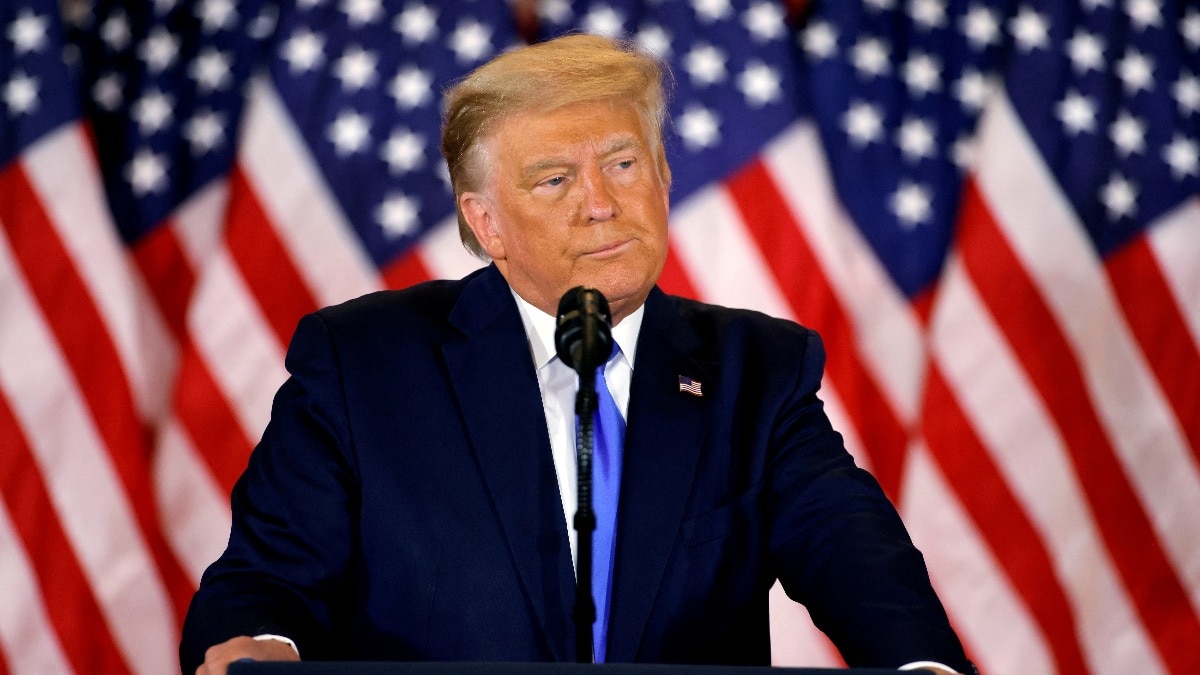The Iowa caucus is especially important for the Republicans as it would clear the clouds over their presidential candidate to take on Democrat Joe Biden in the approaching November presidential election.

(From L-R) Donald Trump, Nikki Haley, Ron DeSantis will face-off at the Iowa caucuses.
As the US gears up for the 2024 presidential election, all eyes are on Iowa, where the first major contest of the primary season takes place on January 16 (IST). The Iowa caucuses hold a special place in American politics, serving as an early indicator of which candidates may lead the race for their party's nomination.
Traditionally held in late January or early February, Iowa holds a unique position in setting the tone for the rest of the primary elections. As a result, candidates often invest considerable time and resources in the state, hoping for a strong showing to build momentum for the subsequent contests.
The Iowa caucus is especially important for the Republicans as it would clear the clouds over their presidential candidate to take on Democrat Joe Biden in the approaching November presidential election.
Here are five things you need to know ahead of the Iowa caucus.
WHY IOWA CAUCUS UNIQUE?
In simple terms, a caucus is a unique way for people to express their choice of a political candidate. Unlike typical primary elections where voters cast secret ballots, the Iowa caucuses involve a more complex and communal process. Participants gather at local precincts across the state, such as schools, churches, and community centres, to openly discuss and vote for their preferred candidates.
- We'd like two minutes of your time in order to understand you better. Please take this reader survey.
This method often involves discussions, negotiations, and multiple rounds of voting until a consensus is reached.
The caucuses are not just about selecting a preferred presidential candidate -- they also play a crucial role in selecting delegates to county conventions and party committees, shaping the political landscape at various levels.
WHO ARE THE REPUBLICAN CANDIDATES?
The Republican candidates in Iowa are Donald Trump, Ron DeSantis, Nikki Haley, Vivek Ramaswamy, and Asa Hutchinson. Chris Christie has dropped out of the race.
WHEN IS THE IOWA CAUCUS?
The Republican Party's caucus is set to commence at 7 pm Central Time on Monday (6.30 am IST on Tuesday), with participants braving the winter weather to have their voices heard.
WHY IS IOWA CAUCUS IMPORTANT FOR US ELECTIONS?
Despite its mixed indicative record, candidates for president view the Iowa caucus as an entry point to the election.
The state's largely White and conservative composition does not necessarily reflect the overall US population. Winners such as Reagan and Bush lost in Iowa, while other losers, including Trump, went on to win.
Since 1972, only Carter, Obama, and Bush have gone directly from Iowa victory to the president. The caucus results frequently shape the presidential race, causing candidates to exit or gain momentum based on their performance.
Despite this, candidates invest significant time and resources in Iowa. For instance, Florida Governor Ron DeSantis has visited all 99 counties and secured the endorsement of Iowa's GOP Governor Kim Reynolds. His campaign has indicated that regardless of the Iowa outcome, they will continue to pursue the nomination, with plans to move on to South Carolina and New Hampshire, which holds its primary on January 23.
WHY ARE DEMOCRATS NOT ORGANISING CAUCUS IN JANUARY?
This year, the Democratic Party in Iowa has opted for a mail-in ballot approach, with results to be announced on Super Tuesday, March 5. After the chaos of the 2020 caucuses, Iowa Democrats revamped their caucus and delegate selection process to ensure a clear winner.
President Joe Biden prioritises South Carolina, followed by New Hampshire, Nevada, and Michigan. Georgia's primary plan faced Republican resistance. New Hampshire maintains its primary status on January 23, where Biden leads a write-in campaign.
Published By:
Girish Kumar Anshul
Published On:
Jan 16, 2024
Tune In













 English (US) ·
English (US) ·